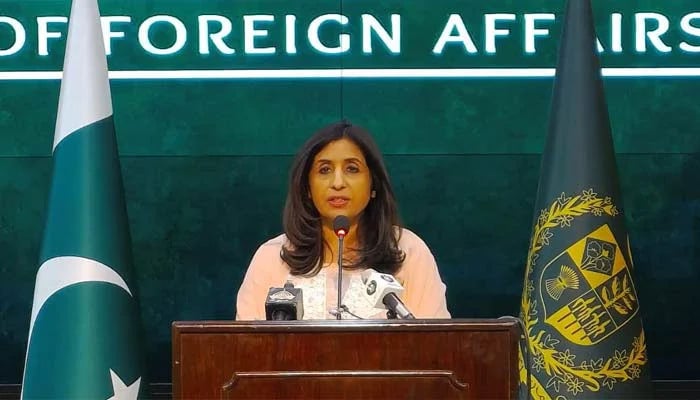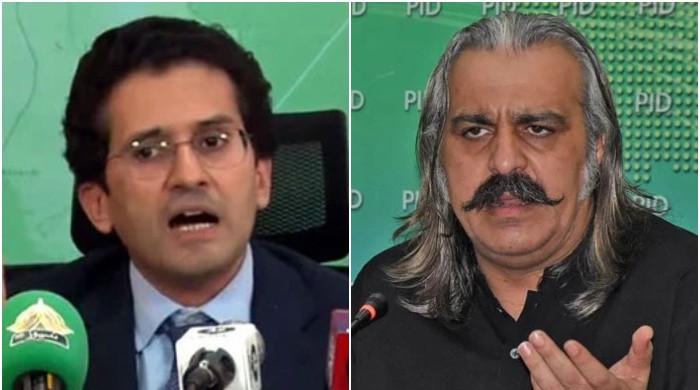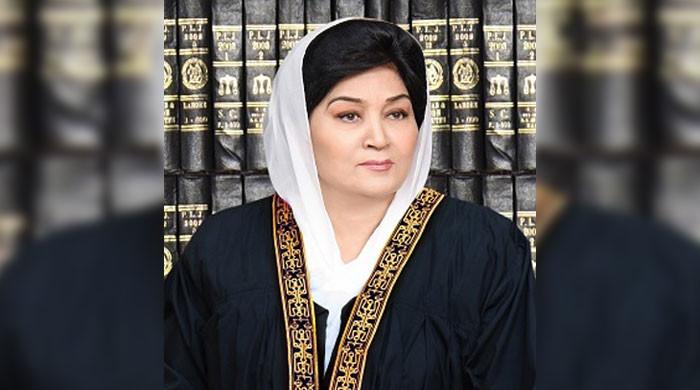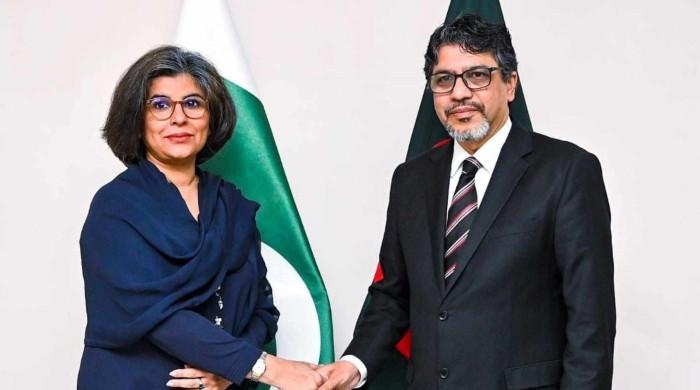Pakistan says US resolution on alleged poll irregularities 'stems from incomplete understanding'
"Such [US] resolution neither constructive nor objective", says FO spokesperson Mumtaz Zahra Baloch
June 26, 2024

- US resolution does not align well with positive dynamics of bilateral ties: FO
- Says Pakistan committed to constitutionalism, human rights and rule of law.
- US Congress should play supportive role in strengthening ties, urges FO spox.
In response to a resolution passed by the United States House of Representatives on alleged poll irregularities in Pakistan’s nationwide general election 2024, the Foreign Office (FO) has said that it “stems from an incomplete understanding of the political situation and electoral process in Pakistan”.
“Pakistan has taken note of the passage of the House Resolution 901 by the US House of Representatives on June 25,” FO spokesperson Mumtaz Zahra Baloch said in response to media queries on Wednesday.
She said, “We believe that the timing and context of this particular resolution does not align well with the positive dynamics of our bilateral ties, and stems from an incomplete understanding of the political situation and electoral process in Pakistan.”
Pakistan, she said, believes in constructive dialogue and engagement based on mutual respect and understanding.
Earlier, the US House of Representatives expressed its support for democracy and human rights in Pakistan by a massive majority, approving the “House Resolution 901” which urged an impartial probe into the claims of irregularities during the February 8 general elections in the country.
At least 368 members of the US house voted in favour of the resolution and called for a "full and independent investigation of claims of interference or irregularities in Pakistan’s February 2024 election". Around seven members have voted against it.
Through the resolution, the US lawmakers have emphasised on the need for the Pakistani public's participation in the country's democratic process months after its general polls were contested as "rigged" and its outcome termed "delayed" by political parties now seated on the opposition benches in the legislature.
The Pakistan Tehreek-e-Insaf (PTI) is among those opposing the results of the polls after its candidates faced immense hurdles in their run up to their participation in the vote, leading them to participate as independent candidates and being deprived of their iconic bat symbol following a legal battle with the Election Commission of Pakistan (ECP).
The country's two major parties, Pakistan Muslim League-Nawaz (PML-N) and Pakistan Peoples Party (PPP), along with other political parties, formed a coalition government in the Centre following the polls, leaving the candidates of PTI and other political parties with the opposition seats.
The resolution, on the other hand, has denounced "attempts to suppress the people of Pakistan’s participation in their democracy, including through harassment, intimidation, violence, arbitrary detention, restrictions on access to the Internet and telecommunications, or any violation of their human, civil, or political rights".
The resolution also condemned “any effort to subvert the political, electoral, or judicial processes of Pakistan".
Responding to the allegations, the FO spokesperson said, “Pakistan, as the world’s second-largest parliamentary democracy and fifth-largest democracy overall, is committed to the values of constitutionalism, human rights and rule of law in pursuance of our own national interest.”
Such resolutions, she further said, are therefore neither constructive nor objective. "We hope that the US Congress will play a supportive role in strengthening Pakistan-US ties and focus on avenues of mutual collaboration that benefit both our peoples and countries,” Baloch concluded.











